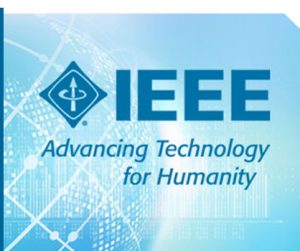 The Institute of Electrical and Electronics Engineers (IEEE), a scientific society that doubles as one of the world’s largest scientific publishers, is retracting nearly 30 articles from a single journal after finding “evidence of systematic violation of IEEE’s policies governing peer review of articles.”
The Institute of Electrical and Electronics Engineers (IEEE), a scientific society that doubles as one of the world’s largest scientific publishers, is retracting nearly 30 articles from a single journal after finding “evidence of systematic violation of IEEE’s policies governing peer review of articles.”
In a statement, IEEE said:
Earlier this year, IEEE received an allegation of misconduct in the peer review process for IEEE Transactions on Electromagnetic Compatibility. An extensive investigation found evidence of systematic violation of IEEE’s policies governing peer review of articles. Three volunteer editors identified during the investigation as involved in the misconduct have been permanently excluded from IEEE membership. They have been prohibited from publishing with IEEE in the future and no longer hold any positions on an IEEE publication.
IEEE declined to provide a list of the 29 articles, the names of the three editors, or details of what specific violations they found. The organization said that its board of directors “has established a committee to examine all aspects of peer review practice across the organization and make recommendations for improvement.”
As we reported in a package of stories for Science last month about our database, IEEE has retracted more than 7,300 conference papers for reasons that are unclear. That figure is about 40% of the 18,000-plus retractions in our database. As we noted,
… several years ago, in its decades-old catalog of abstracts, IEEE staff started to notice thousands of summaries that “did not meet our guidelines,” according to a spokesperson. The spokesperson wouldn’t disclose how they noticed the issue, “for reasons of operational integrity.”
Update, 1730 UTC, 11/20/18: A commenter below points out that a search of the journal for retractions reveals 29 items. While we can’t be sure those are the same 29 papers, here they are. All but three were authored or co-authored by Antonio Orlandi, the now-former editor in chief of the journal.
Like Retraction Watch? You can make a tax-deductible contribution to support our growth, follow us on Twitter, like us on Facebook, add us to your RSS reader, sign up for an email every time there’s a new post (look for the “follow” button at the lower right part of your screen), or subscribe to our daily digest. If you find a retraction that’s not in our database, you can let us know here. For comments or feedback, email us at [email protected].
Wow, the lack of transparency around this is astounding. Hopefully they are just getting their ducks in a row before a thorough report is issued.
I’m not so sure if we should be too surprised at the “lack of transparency”. I haven’t gone through the organization’s constitution, but it’s perhaps no different than some local organization. It’s just because of its size, we expect more from them. I wonder if it’s our fault for expecting too much?
I don’t think there’s an international organization that is similar in standing that “competes” with it; that’s probably what’s needed to motivate better transparency.
The PSPB Ops Manual offers a flowchart of their processes. I have never been involved with the running of the IEEE, but their approach in these cases appears to prioritise confidentiality and protecting the privacy of those involved over anything else.
Use “Notice of Retraction X “Publication Title” IEEE Transactions on Electromagnetic Compatibility in IEEE Xplore and limit the search between 2017 and 2018, the search turned out 29 retractions. Then look for editors for these articles, we may get some clue.
further explore found the their Editor-in-Chief, Dr. Antonio Orlandi, has been replaced with Dr. Tzong-Lin Wu.
Frankly I’m not surprised. “IEEE technical co-sponsorship” on a call for papers in computing science is a code-word for “pay to publish”. The IEEE’s official position on this is that they’re trying to help engineering in developing countries…
Four of the 29 articles are co-authored by the current President of the EMC Society of the IEEE. Is he going to resign?
I worked with IEEE for years and was always laughing when academics try to be honest and say IEEE operates within the boundaries of good practices, but sometimes it reaches until the borderline. The reality is that IEEE is corrupted like most of the publishers, even more, corrupted than most of them. There is no transparency because they try to limit the damages between the academic mafia within them.